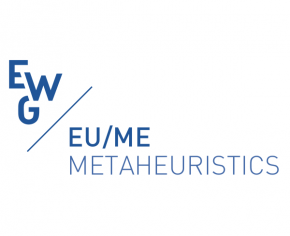The 13th edition of the Metaheuristics International Conference (MIC 2019) was held in Cartagena (Colombia) from July 28 to 31, 2019. The Caribbean campus of the Universidad de los Andes in Cartagena was the perfect setting for attendees to disseminate and keep up to date with the progress in the area of metaheuristics, its techniques, empirical and theoretical research, industrial applications, and interface with other domains. A long-standing tradition of the conference is its commitment to disseminating the field throughout the world. The conference, held for the first time in Breckenridge (Colorado, US) in 1995, has traveled to Singapore and Tokyo in Asia; Hamburg, Barcelona, and Porto in Europe; Agadir (Morocco) in Africa; Montréal and Angra Dos Reis (Brazil) in the Americas, among many other cities. Bringing this community to the Caribbean, and in particular, to Cartagena (Colombia), was a special and magical experience.
The conference brought 100 participants (37 students) from 17 countries: Colombia (35), France (14), Brazil (11), United States (9), Spain (7), Japan (5), Portugal (4), Mexico (2), Cuba (2), Chile (2), Canada (2), United Kingdom (2), Lebanon (2), Switzerland (1), Austria (1), and Germany (1).
This year’s MIC had three plenaries delivered by leaders of the optimization community. In the first plenary, Michel Gendreau (École Polytechnique Montréal, Canada) shared a historical perspective of the field, illustrating it with stories behind the three editions of the Handbook of Metaheuristics. In the second plenary, Celso Ribeiro (Federal Fluminense University, Brazil) provoked attendees by showing how metaheuristics relate to the most relevant problems of our society, such as the current polarization that we are experiencing globally. Finally, the third plenary by Andrea Lodi (École Polytechnique Montréal, Canada), invited the audience to discover challenges and opportunities that arise at the frontier of machine learning.
In this edition of MIC, three tutorials focused on the state-of-the-art (and practice) of the field. Luciana Buriol (Universidade Federal do Rio Grande do Sul, Brazil) shared some lessons learned from her practical experience applying routing and scheduling in urban contexts. Ramón Álvarez (Universitat de València, Spain) delivered a comprehensive tutorial on packing problems, focusing on the challenges that lie at the intersection with routing, where these problems naturally arise in industrial applications. José Fernando Oliveira (Universidade do Porto, Portugal), presented a novel methodology based on metaheuristics to generate realistic scenarios of combinatorial problems that push the limits of optimization methodologies.
The social program featured a welcome cocktail on Sunday, July 28, offered at the Holiday Inn Hotel. On Tuesday, the stone walls of Cartagena, an old fortress built to defend the city of Cartagena from pirate attacks, was the perfect setting to have dinner surrounded by a spectacular view of the sea and the historic center. During the meal, folk dancers shared rhythms from the city and the Caribbean region.
This edition of MIC was supported by Universidad de los Andes (Colombia), Universidad de Antioquia (Colombia), Fundación Universidad de Antioquia (Colombia), EU/ME – EURO Working Group on Metaheuristics (special thanks to Marc Sevaux, Université de Bretagne-Sud, France), with the endorsement of the Colombian Association of Operational Research (ASOCIO).
The MIC organizing committee was formed by professors Rubén Ruiz (Universitat Politècnica de València, Spain), Jorge E. Mendoza (HEC Montréal, Canada), Juan G. Villegas (Universidad de Antioquia, Colombia) and Andrés L. Medaglia (Universidad de los Andes, Colombia). The committee relied on the flawless work of the personnel of the Caribbean campus, led by Myriam Pérez (Universidad de los Andes); Vanina Jácob from Public Relations (Universidad de los Andes); and Alfaima Solano, graduate assistant of Industrial Engineering and the Center for Optimization and Applied Probability (COPA – Universidad de los Andes).


